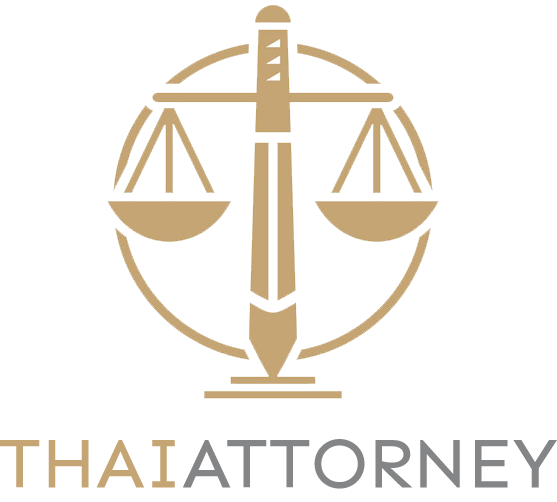Labor disputes are an important aspect of employment relations in Thailand, reflecting the dynamic interaction between employers, employees, trade unions, and government authorities. As Thailand’s economy continues to grow and diversify across manufacturing, services, construction, and tourism sectors, disputes arising from employment relationships are inevitable. Understanding the types of labor disputes in Thailand is essential for employers, employees, and foreign investors to manage risks, protect rights, and ensure compliance with Thai labor laws.
Overview of Labor Disputes under Thai Law
Labor disputes in Thailand are governed primarily by the Labor Relations Act, the Labor Protection Act, and related regulations. These laws aim to balance the interests of employers and employees while maintaining industrial peace and economic stability. Labor disputes generally arise when there is disagreement over employment conditions, rights, obligations, or the interpretation and application of labor laws or employment contracts.
Thai labor law recognizes both individual and collective labor disputes. Each category has distinct legal processes, dispute resolution mechanisms, and potential outcomes.
Individual Labor Disputes
Individual labor disputes involve conflicts between a single employee and an employer. These disputes are commonly brought before the Labor Court and typically relate to rights and obligations under employment contracts or labor legislation.
Wrongful Termination
Wrongful or unfair termination is one of the most common types of individual labor disputes in Thailand. Employers are required to have lawful grounds for termination and must comply with statutory notice requirements or provide payment in lieu of notice. Disputes often arise when employees allege that termination was unjustified, discriminatory, or procedurally improper.
Claims may include demands for compensation, severance pay, or reinstatement, depending on the circumstances.
Wage and Benefit Disputes
Disputes over wages, overtime pay, bonuses, allowances, and other employment benefits are frequent in Thailand. Employees may claim unpaid wages, incorrect overtime calculations, or failure to provide statutory benefits such as holiday pay or social security contributions.
These disputes highlight the importance of compliance with the Labor Protection Act, which sets minimum standards for wages, working hours, and employee benefits.
Working Conditions and Job Duties
Conflicts may arise over changes to job duties, working hours, workplace transfers, or conditions of employment. Employees may challenge unilateral changes made by employers that significantly affect their rights or working environment, particularly if such changes were not agreed upon in the employment contract.
Collective Labor Disputes
Collective labor disputes involve groups of employees, often represented by labor unions, and typically concern broader employment conditions or collective agreements.
Disputes over Collective Bargaining Agreements
Collective bargaining agreements (CBAs) govern terms such as wages, working hours, and benefits for groups of employees. Disputes may arise over the interpretation, implementation, or renewal of CBAs. These disputes often require negotiation, mediation, or arbitration under the Labor Relations Act.
Demands for Improved Employment Conditions
Employees or labor unions may raise collective demands for improved wages, benefits, or working conditions. If negotiations fail, these demands can escalate into formal labor disputes. Such disputes may lead to strikes or lockouts if not resolved through legal channels.
Trade Union and Labor Organization Disputes
Disputes involving trade unions and labor organizations are another important category of labor disputes in Thailand.
Union Recognition and Rights
Conflicts may arise over the recognition of labor unions, the right to organize, or alleged interference by employers in union activities. Thai law protects employees’ rights to form and join labor unions, and disputes in this area are treated seriously by labor authorities and courts.
Disciplinary Action against Union Members
Employers may face disputes if union members allege that disciplinary actions, demotions, or terminations were motivated by anti-union discrimination. Such disputes often involve complex factual and legal issues and may attract regulatory scrutiny.
Industrial Action Disputes
Industrial actions such as strikes and lockouts can give rise to labor disputes, particularly when their legality or procedures are challenged.
Strikes
Employees may engage in strikes following legal procedures when collective disputes cannot be resolved. Disputes may arise over whether a strike was lawful, whether proper notice was given, or whether the strike violated essential service rules.
Lockouts
Employers may respond to labor disputes by imposing lockouts, temporarily preventing employees from working. Disputes often arise regarding the legality, timing, or proportionality of such actions.
Occupational Safety and Health Disputes
Disputes related to workplace safety and health are increasingly important in Thailand, especially in high-risk industries such as construction and manufacturing.
Employees may raise disputes over unsafe working conditions, lack of protective equipment, or failure to comply with occupational safety regulations. These disputes may involve labor inspectors, administrative penalties, or claims before the Labor Court.
Disputes Involving Foreign Employees and Employers
With Thailand’s growing international workforce, labor disputes involving foreign employees and foreign-owned companies are becoming more common.
These disputes may involve issues such as work permits, employment termination, compensation, and compliance with Thai labor laws. Cultural differences, language barriers, and differing legal expectations can complicate resolution, making legal guidance particularly important.
Dispute Resolution Mechanisms
Thailand provides several mechanisms for resolving labor disputes, reflecting the importance of maintaining industrial harmony.
Negotiation and Mediation
The first step in many labor disputes is negotiation or mediation facilitated by labor officials. These methods aim to resolve disputes amicably without resorting to litigation or industrial action.
Labor Court Proceedings
If disputes cannot be resolved through negotiation or mediation, they may be brought before the Labor Court. The Labor Court has specialized procedures designed to resolve labor disputes efficiently and fairly.
Conclusion
The types of labor disputes in Thailand are diverse, reflecting the complexity of modern employment relationships. From individual claims over termination and wages to collective disputes involving unions and industrial action, each type of labor dispute plays a significant role in shaping labor relations.
Understanding these disputes is essential for both employers and employees to protect their rights, comply with legal obligations, and maintain productive working relationships. As Thailand’s labor market continues to evolve, effective management and resolution of labor disputes will remain a cornerstone of social stability, economic growth, and fair employment practices.

